
Six Years The Dematerialization of the Art Object by Lucy Lippard
Dematerialization of the art object is an idea in conceptual art defined as the expressive physical manifestations in which the idea is paramount and the material form is secondary. [1]
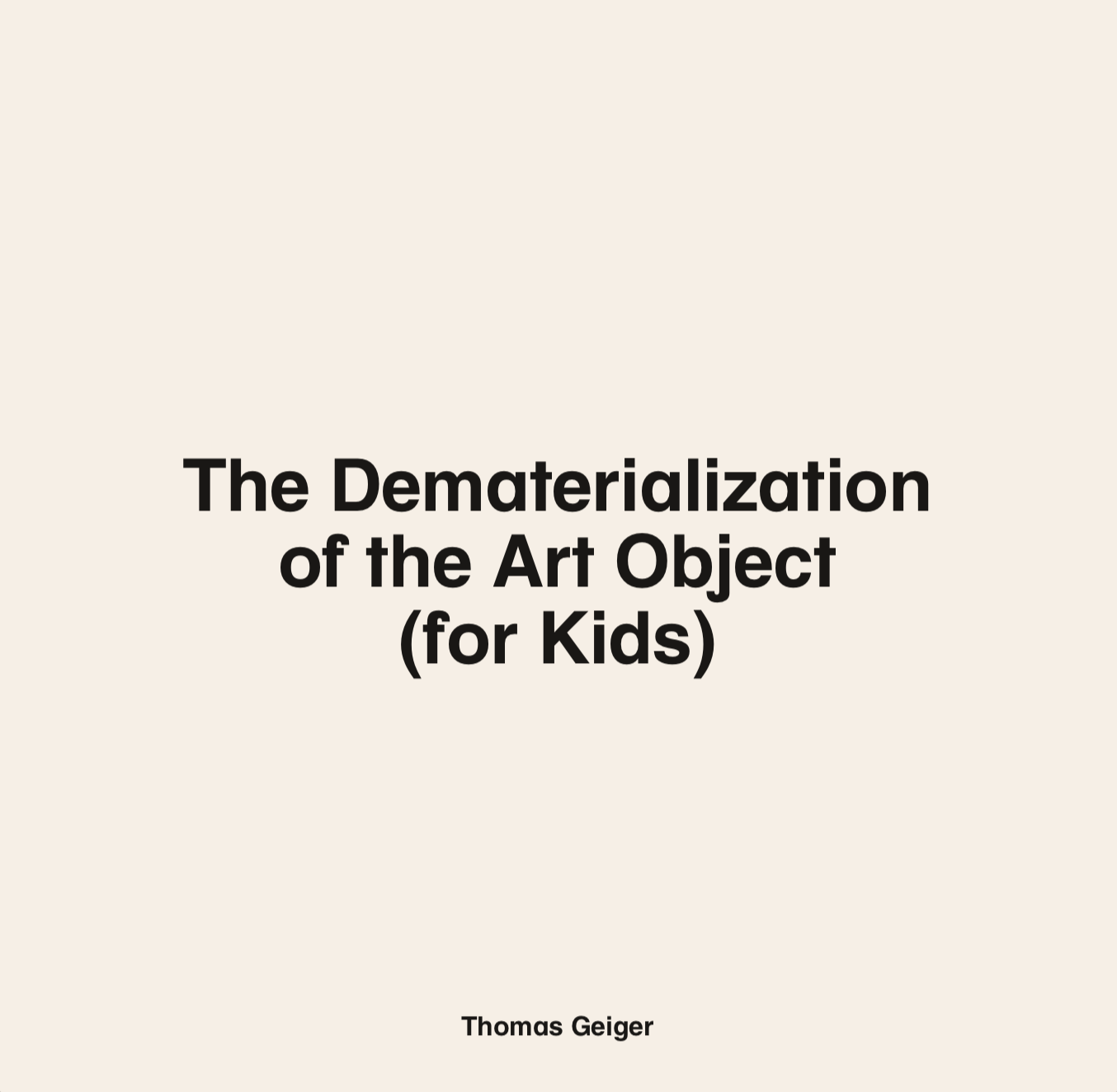
edcat The Dematerialization of the Art Object (for Kids)
The Dematerialization of the Art Object is not a conscious corruption of history. It is a victim of the historical forces it is unable to acknowledge. To confront these forces requires an analysis of the political and economic issues that inform esthetic problems. Books such as this one have a predetermined use demanded by the system of.

Photo & Poetry Photography, and the The Dematerialization of the art
The Great Escape. Forty years ago the writer and art critic Lucy Lippard produced her definitive anthology of conceptual art, Six Years: The Dematerialization of the Art Object from 1966 to 1972. Conceptual art, more of a moment than movement, was one of art's last great attempts to escape capitalism. Conceptual art emphasized ideas, language.

Photo & Poetry Photography, and the The Dematerialization of the art
Six Years: The Dematerialization of the Art Object from 1966 to 1972. "Many artists, curators, and cultural critics will be interested in the republication of this anthology since the movement it gives contour to has had a tremendous influence on the contemporary art of the last 25 years, and on the critical discussion surrounding the concept.

Six Years The Dematerialization of the Art Object from 1966 to 1972
Representation, Concept, and Formalism: Gadamer, Kosuth, and the Dematerialization of the Art Object.pdf Available via license: CC BY-NC-ND 4.0 Content may be subject to copyright.
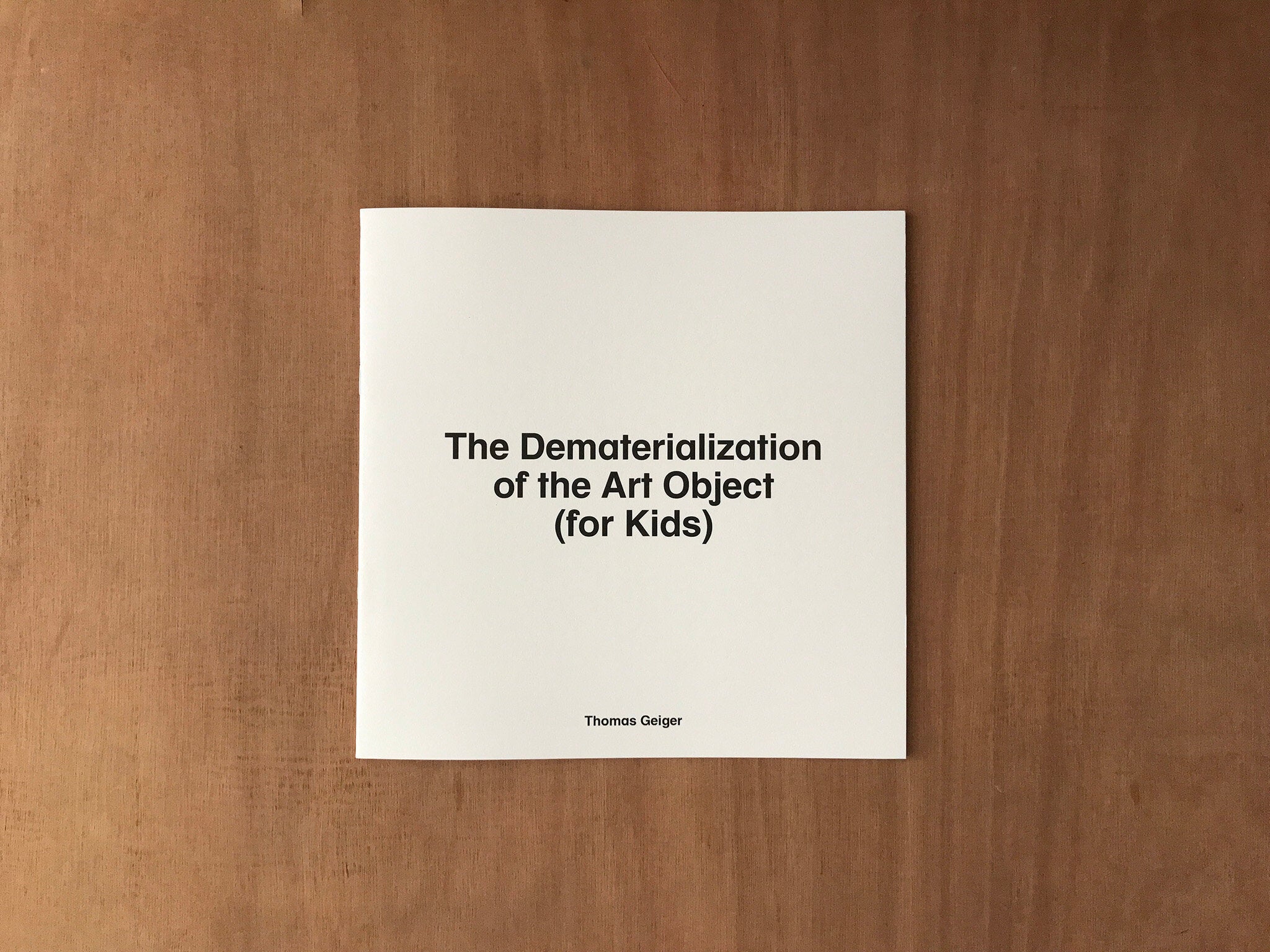
THE DEMATERIALIZATION OF THE ART OBJECT (FOR KIDS) by Thomas Geiger
Lippard was among the first writers to argue for the "dematerialization" at work in conceptual art and was an early champion of feminist art. She is the author of 21 books on contemporary art and has received numerous awards and accolades from literary critics and art associations. Reviews

'Dematerialization Near the Nose of Nero',1947 Salvador Dali Paintings
It had a major impact on my development as an artist. The author discusses the trend called "conceptual art" which flowered in the time period mentioned in the title (late 60's through early 70's). These artists rejected the craft of art and the creation of objects themselves seeking instead something more fundamental. Ms.
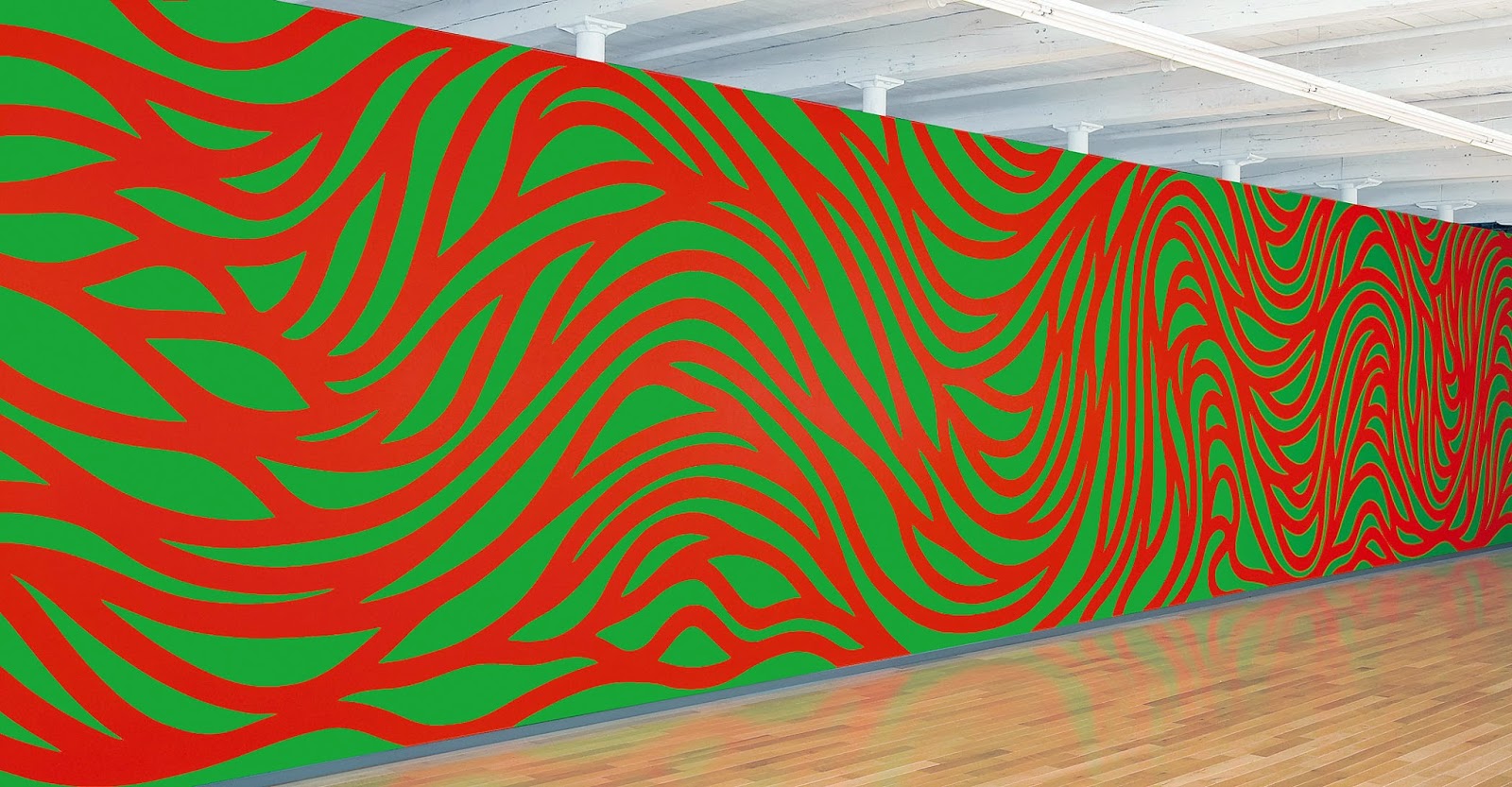
Photo & Poetry Photography, and the The Dematerialization of the art
This paper draws on Philosophy and Art History to consider the relation of Conceptual Art to Modernism. It is sceptical of the justification that Conceptual Art arose out of some necessary poverty of the Modernist project.. The Dematerialization of the art object. In: Goldie, Peter and Schellekens, Elisabeth eds. Philosophy and Conceptual.
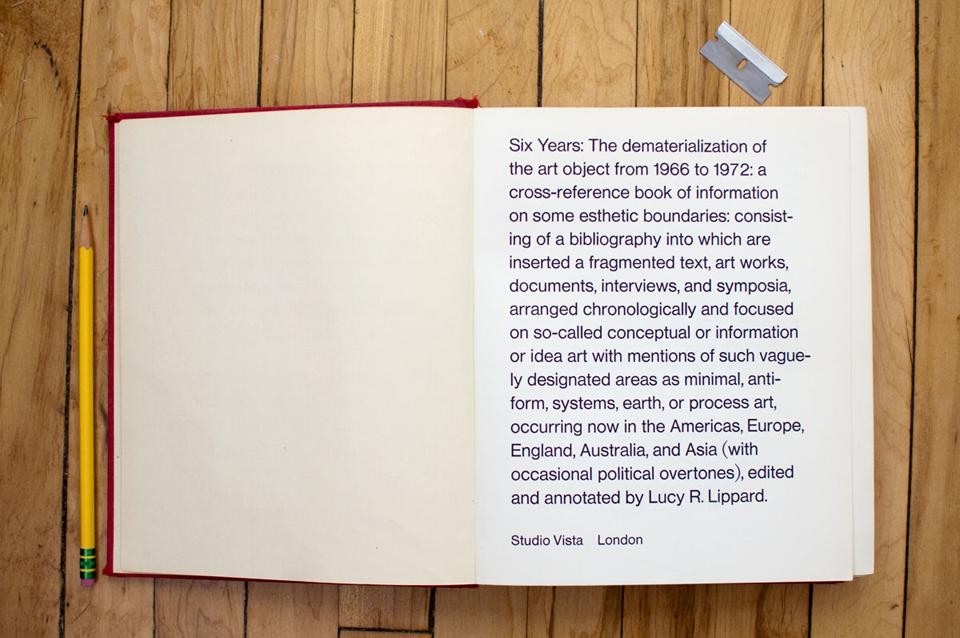
Materializing "Six Years" Domus
Her book Six Years: The Dematerialization of the Art Object from 1966 to 1972 remains a seminal text on the subject. Conceptual art also reacted against the commodification of art, attempting subversion of the gallery or museum as the location and determiner of art and the art market as the owner and distributor of art. Many conceptual artists.

Six Years The Dematerialization of the Art Object from 1966 to 1972
Lucy R. Lippard (American, b. 1937). Six Years: The dematerialization of the art object from 1966 to 1972: a cross‑reference book of information on some esthetic boundaries: consisting of a bibliography into which are inserted a fragmented text, art works, documents, interviews, and symposia, arranged chronologically and focused on so‑called conceptual or information or idea art with.

Urânia José Galisi Filho Mel Bochner a Book Review on Lucy Lippard
Lippard and Chandler dubbed this radical transformation "dematerialization," a term that has since matriculated into art historians' lexicons, as well as the annals of art history. Through dematerialization, the critics believed art might escape commodification because dealers could not sell art-as-idea.
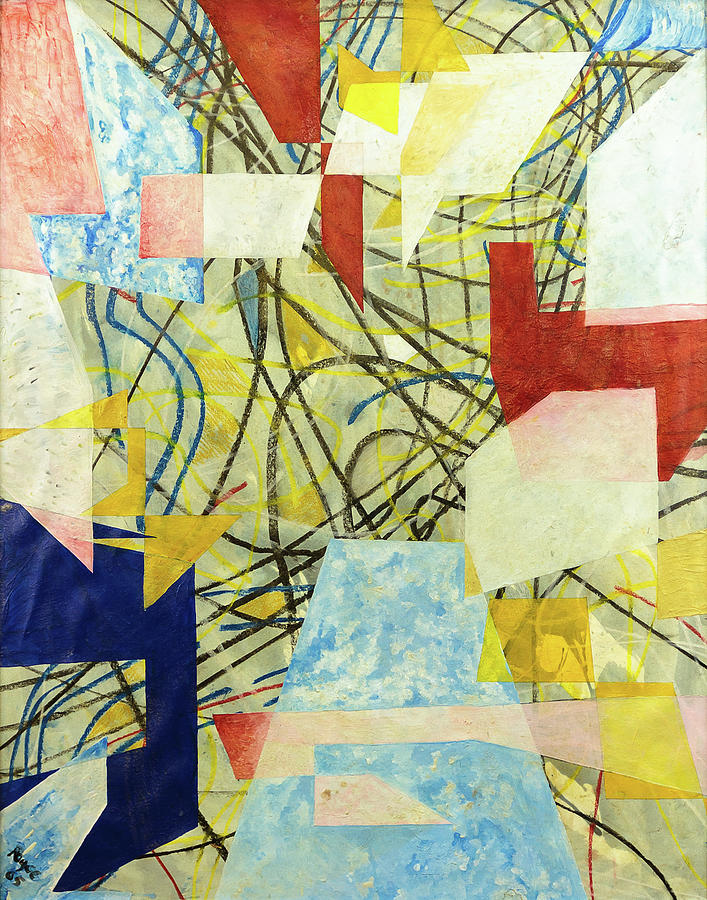
Dematerialization of a Vortexial Living Room Painting by Richard Royce
the dematerialization of art lucy r. lippard and john chandler During the 1960's, the anti-intellectual, emotional/intuitive processes ofart-making character istic of the last two decades have begun to give way to an ultra-conceptual art that emphasizes the thinking process almost exclusively.

The 1960s and 1970s witnessed what has been termed the
Lippard's 1968 essay "The Dematerialization of Art" and her 1973 book Six Years: The Dematerialization of the Art Object from 1966 to 1972 were among the first works to describe and define the practice of Conceptual Art of the time.

Lucy R Lippard Six yearsThe dematerialization of the art object
Six years : the dematerialization of the art object from 1966 to 1972. : Lippard, Lucy R : Free Download, Borrow, and Streaming : Internet Archive Six years : the dematerialization of the art object from 1966 to 1972. by Lippard, Lucy R Publication date 1997 Topics Conceptual art, Art, Modern -- 20th century Publisher

Six Years The Dematerialization of the Art Object from 1966 to 1972
By Lucy Lippard. "Six Years: The Dematerialization of the Art Object from 1966 to 1972: a cross-reference book of information on esthetic boundaries:consisting of a bibliography in which are inserted a fragmented text, art works, documents, interviews, and symposia, arranged chronologically and focused on so-called conceptual or information.

Six Years The Dematerialization of the Art Object from 1966 to 1972
Coined in 1968 by Lucy Lippard and John Chandler, the term dematerialization is associated with what they call "ultra-conceptual art," which "emphasizes the thinking process almost exclusively" and "may result in the object becoming wholly obsolete." 2